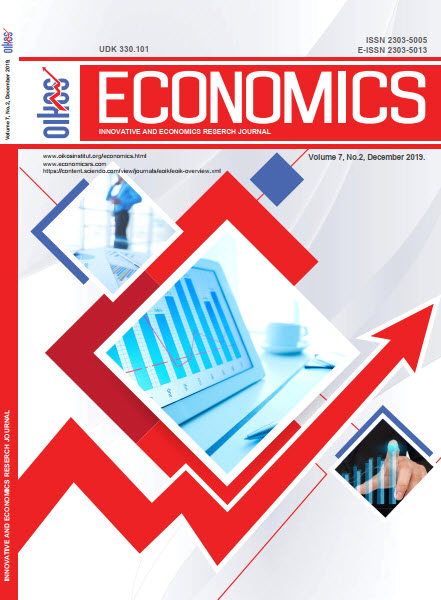CAN SLEEP DURATION HELP EXPLAIN DIFFERENCES IN THE HAPPINESS INDEX ACROSS NATIONS?
DOI:
https://doi.org/10.2478/eoik-2019-0014Abstract
Inadequate sleep is an important public health problem that can affect one in every three adults;
however, it received little attention in the economics of happiness research. The objective of
this article is to examine whether sleep adequacy contributes to the explanation of variation in
happiness index levels across countries. Analysis was undertaken using ordinary least squares
regression method. The dependent variable is the self-reported happiness index developed by the
Gallup poll and published in the World Happiness Report. Two alternative model specifications
were used. The first included average sleep minutes per country, GDP per capita(purchasing
power parity), unemployment rate, and environmental performance index. The second model
specification included average sleep minutes per country, GDP (purchasing power parity), and
economic freedom index. Both model specifications met several robustness checks, and showed
overall significance and significant coefficients. Results showed that an increase in average sleep
duration by 10 minutes is associated with an improvement in the happiness score by 0.1 and 0.15
points in the first and second model specifications respectively, noting an average happiness score
of 6.2 in the country sample. The conclusion that sleep duration contributes to explaining variation
in happiness levels across countries is a call for policy makers to consider policies targeting
improvement in sleep adequacy as priority, and to direct more resources to further research in
the area of sleep economics. Previous studies in the area of happiness economics did not consider
sleep in explaining differences in happiness among countries, and previous studies in the area of
economics of sleep did not consider the happiness index at a global level.
